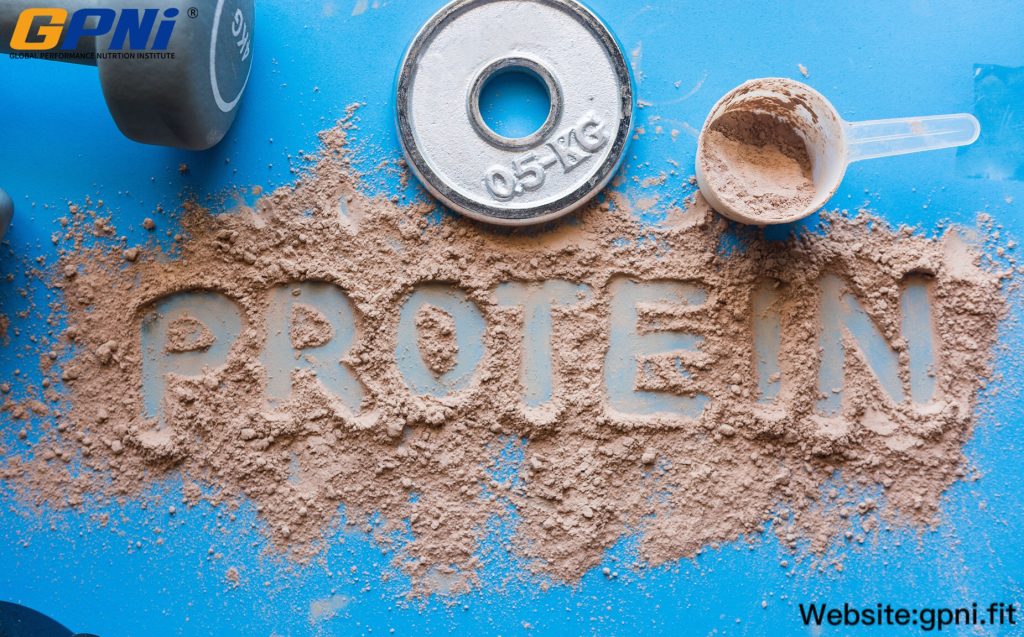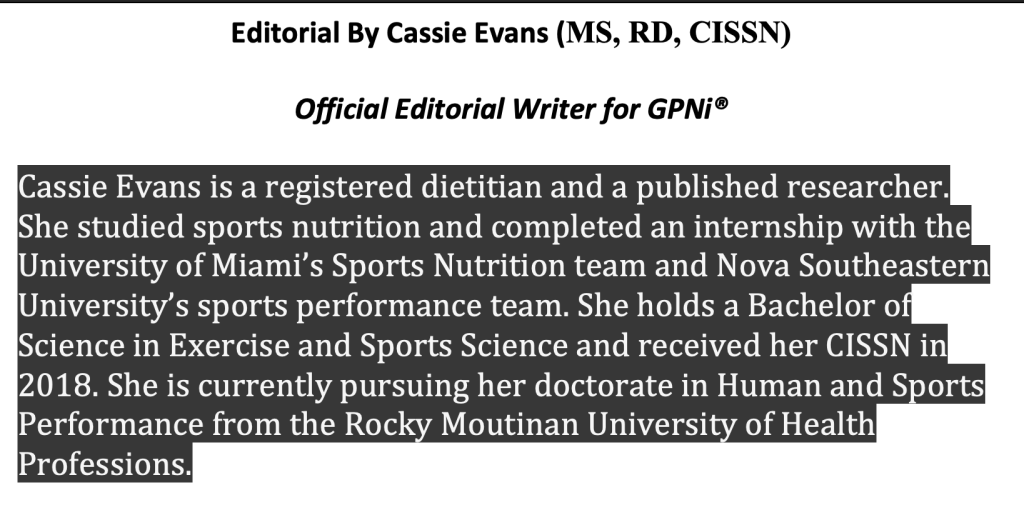Editorial By Cassie Evans

All macronutrients are important. With that being said, if I had to pick one as the most important (and personal favorite), it would be protein. Protein in the most versatile and its benefits extend far beyond muscle health. Our bodies are continually breaking down, using, and discarding protein, making consuming enough protein vital to our health. Amino acids help grow and maintain tissues all over the body. Hence the saying “amino acids are the building blocks of life”. Unlike other macronutrients, the body does not store protein. During times of protein intake, the body will breakdown muscle tissue and other tissue proteins.
The Recommended Dietary Allowance (RDA) for protein starts at 0.8 grams per kilogram of body weight per day (g/kg/d) for the general population. It is important to keep in mind that the RDA is a general recommendation. Different stages of life have different protein requirements. For example, infancy, adolescence, and pregnancy rely mostly on protein to support exponential, healthy growth, thus require more protein. Individuals engaged in regular physical activity require more protein. The International Society of Sports Nutrition recommends 1.4–2.0 g/kg/d. Ideally, a food first approach is preferred. Dietary sources of protein include chicken, eggs, meat and plant based options such as quinoa, beans and nuts. Protein supplements are a great way to increase protein intake when on-the-go, when you’re having trouble consuming enough protein via food or you are looking to increase your protein intake. Given the plethora of protein supplement products, picking the right one can seem like a daunting task.

The major categories of protein supplements are protein bars/cookies, ready-to-drink (RTDs) and protein powders. RTDs and protein bars are great option for on the go and don’t require any mixing. Protein powders tend to be less expensive and are more versatile. Powders can be added to smoothies, used to make protein pancakes, added to oatmeal or simply mixed with a liquid of choice. Protein supplements can be further categorized based on type. Plant-based vs animal based. Here is a quick go to guide to help decipher the world of protein supplements. Dairy based proteins are among the most popular and well-researched. These include whey, casein and other blends. For those who are lactose intolerant or sensitive, bone broth protein, collagen and egg white proteins are an alternative. Plant-based protein powders include soy, pea, hemp and other blends. Most plant-based proteins are not considered complete proteins. This is ok as long as different protein sources are included to ensure all amino acids are being consumed throughout the day. Some companies sell mixtures of concentrate and isolate proteins or add these to food products. Isolates tend be more expensive and undergo more processing which means they have more protein by weight compared to concentrate.
After deciding what type of protein supplement to include (RTDs vs powders vs plant-based etc) based on your goals, the next step is to find a product. Each protein supplement has a unique flavor and texture depending on the ingredients and protein source. I recommend trying a variety of different brands to find the one that tastes the best. Remember to aim for at least 20g of protein with each meal!









